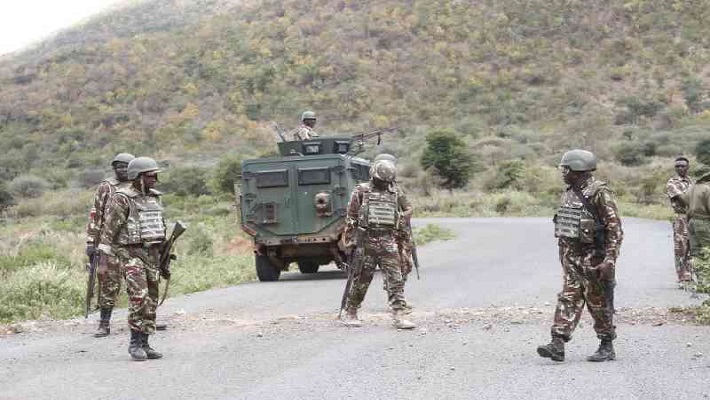By Arnold Neliba
ELDORET, JUNE 27, 2023 (CISA)– The Kenya Conference of Catholic Bishops (KCCB) has announced that six dioceses will form a united front in creating synergies for peacebuilding processes to address the root causes of conflict that trigger violence among the pastoralist communities in the North Rift region.
Dubbed the ‘North Rift Peace Initiative’ (NRPI), the project initiated by the six diocesan Catholic Justice and Peace Departments (CJPDs) will be launched on Wednesday, June 28, 2023, at St John’s Pastoral Centre in Eldoret.
The event, which will be graced by the Chairperson of KCCB, Most Rev. Martin Kivuva Musonde and the six Catholic bishops from the targeted dioceses, will also see the attendance of the county governors of Eldoret, Nakuru, Baringo, Laikipia, Elgeyo Marakwet, West Pokot, Trans Nzoia, Turkana and Samburu and other Senior Officers from the Ministry of Interior and Coordination of National Government.
The six dioceses that the NRPI covers include the Catholic Diocese of Eldoret, Nyahururu, Nakuru, Kitale, Maralal and Lodwar.
Fr Ferdinand Lugonzo, the General Secretary of KCCB, explains “Through the initiative, the Dioceses will create synergies for peacebuilding through advocacy, learning and collaboration. The initiative aims to bring together peacebuilding actors in the region to curb perennial violence and join forces in transforming the underlying conflict drivers.”
KCCB notes in the North Rift of Kenya, insecurity and violent conflicts are wreaking havoc with detrimental effects on the communities involved; Pokot, Tugen, IIchamus, Endoris, Samburu, Turkana and Marakwet. They argue that “the problem is further compounded by open discriminatory tendencies and apathy of one community towards another leading to a vicious circle of insecurity and poverty.”
“The region is part of the least developed in Kenya today due to remoteness, rugged terrain, underdeveloped infrastructure and pastoralists’ migratory nature. The formal security system is inappropriate to manage the nature and the magnitude of the conflicts. Common crimes in this region have been cattle theft, raids and the trade of small arms and light weapons. Conflicts have escalated due to militarization and crime which have been fueled by people’s attitudes, beliefs, cultural practices, economic interests and political affiliation,” KCCB indicates.
In 2021, according to KCCB the six Catholic Dioceses came together and signed a Memorandum of Engagement on Conflict Management and Peace Building in the North Rift and approved a joint strategy paper that will enable collaboration in addressing peace challenges, conflicts and other related issues using coordinated efforts to complement each other’s work, ensure effective and efficient resource utilization as well as united resource mobilization.
In recent days, the North Rift region has been undergoing a joint security exercise since February 13 by the National Police Service (NPS) and the Kenya Defense Forces (KDF) to clear out bandits and recover illegal firearms from the people.
In an interview with CISA in February before his consecration as Bishop of Nakuru, Rt. Rev. Cleophas Oseso said that the operation alone may not bring sustainable solutions to the elusive peace in the region.
“Education and improvement of infrastructure such as the building of roads for accessibility are key as well as availing alternative sources of livelihood resonating with the pastoral communities as some of the solutions to the age-long conflict,” said Bishop Oseso as he appealed for a collaborative front by affected dioceses that border each other in the fight to bring peace to the region.
He said lasting peace required a concerted effort of all the stakeholders; community and opinion leaders, the government, political and faith leadership, and the goodwill of the affected people to come up with sustainable solutions.
According to KCCB, the NRPI “is also keen in addressing issues of climate change mitigation and sustainable livelihoods as these are additional sources of conflict in the region.”
